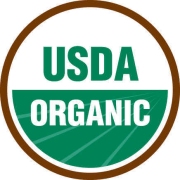 To quote Yogi Berra the situation regarding housing of hens producing under the USDA Certified Organic seal is "deja vu all over again". In the declining hours of the Obama Administration, Secretary of Agriculture, Tom Vilsack issued regulations requiring hens to have minimal outside access to comply with USDA organic status for their eggs. At issue was the use of sun porches by producers who erected in-line multi-house aviary units with between 0.5 and 1.5 million hens. The 2017 regulation would have disqualified these operations to produce Certified Organic eggs. Incoming Secretary of Agriculture, Dr. Sonny Perdue rescinded the Rule and allowed the status quo for organic housing.
To quote Yogi Berra the situation regarding housing of hens producing under the USDA Certified Organic seal is "deja vu all over again". In the declining hours of the Obama Administration, Secretary of Agriculture, Tom Vilsack issued regulations requiring hens to have minimal outside access to comply with USDA organic status for their eggs. At issue was the use of sun porches by producers who erected in-line multi-house aviary units with between 0.5 and 1.5 million hens. The 2017 regulation would have disqualified these operations to produce Certified Organic eggs. Incoming Secretary of Agriculture, Dr. Sonny Perdue rescinded the Rule and allowed the status quo for organic housing.
Secretary Tom Vilsack now in his second term has announced that the 2017 Organic Livestock and Poultry Practices Final Rule would be revoked as it was not authorized under the Organic Foods Production Act. Speaking to a partisan audience at the Organic Trade Association on June 16th, Vilsack confirmed that he has instructed the National Organic Program to begin a rule-making process to address the standards for housing and to disallow the use of porches as outdoor space for organic production.
 Vilsack also committed to reestablish the position of a USDA Organic Policy Advisor in the USDA-AMS and would increase compliance enforcement and expand the "number and diversity of those who will be involved in inspections and certifications". Vilsack considers that the issue of outside access for hens is critical to the public perception of the integrity of the Certified Organic Program stating, "we recognize the importance of it, we recognize the value-added opportunities that it presents, and we think it is an important part of the industry that will help us to a much better, climate-friendly agriculture".
Vilsack also committed to reestablish the position of a USDA Organic Policy Advisor in the USDA-AMS and would increase compliance enforcement and expand the "number and diversity of those who will be involved in inspections and certifications". Vilsack considers that the issue of outside access for hens is critical to the public perception of the integrity of the Certified Organic Program stating, "we recognize the importance of it, we recognize the value-added opportunities that it presents, and we think it is an important part of the industry that will help us to a much better, climate-friendly agriculture".
For the record, the number of hens in the USDA Certified Organic Program during the first quarter of 2020 averaged 15.7 million. A year later, this number had increased by 10.8 percent but in recent months has demonstrated only minimal growth. Comparing Nielsen sales statistics with the population of certified organic hens it is apparent that with 7.8 percent of the 225 million hens producing shell eggs, sales of Certified Organic eggs represented only 3.4 percent of the potential production through the first quarter of 2021. It is evident that approximately half of the certified organic eggs produced at a substantial incremental cost over generic eggs are in fact downgraded to the cage-free category. This may be attributed to shelf price since for the week ending June 24th, USDA certified organic brown large was advertised at $3.99 per dozen compared to cage-free brown at $2.55 per dozen and generic white from cages at $1.17 per dozen.
It is estimated that more than half of the organic eggs currently sold are produced from in-line aviary operations. Disqualifying these facilities would immediately create a shortage of certified organic eggs raising prices to over $6 per dozen for eggs from operations with outside access further depressing demand. Family-owned and corporate operations using aviaries with sun porches would market their eggs in a new category yet to be named, emphasizing "GMO and antibiotic free" These attributes have been shown to be more important than the USDA Organic seal with respect to consumer awareness and demand. This new category would be supported by the major retail chains that would make shelf space available for a rapid-moving $4 per dozen product. The new category backed by promotion, an industry certification and third-party audit program would compete with and dominate the cage-free market to the detriment of traditional compliant USDA Certified Organic eggs.
 Organic eggs will still be produced by contractors using floor housing with outside access. These eggs will be less sustainable than eggs from aviaries with sun porches, requiring more labor input and feed. The possibility of egg-transmitted bacterial diseases and the presence of helminth parasites in eggs will increase as a consequence of outside access and will be reflected in questionable food safety, inconsistent quality, higher price and enigmatically inferior flock welfare.
Organic eggs will still be produced by contractors using floor housing with outside access. These eggs will be less sustainable than eggs from aviaries with sun porches, requiring more labor input and feed. The possibility of egg-transmitted bacterial diseases and the presence of helminth parasites in eggs will increase as a consequence of outside access and will be reflected in questionable food safety, inconsistent quality, higher price and enigmatically inferior flock welfare.
The move to disqualify in-line aviary housing using sun porches appears inevitable. The Organic Trade Association has already filed a motion before U.S. District Judge Paul Friedman to revoke the 2017 USDA regulations. If Judge Friedman grants the petition, the USDA will be able to redraft regulation mandating outside access that was proposed prior to 2017 and presented for public comment and subsequent implementation.
The Organic Trade Association has the support of the Cornucopia Institute that is on record as stating "the vast majority of organic chicken and eggs for sale in the United States come from industrial-scale producers. In contrast ethical producers focus on legitimate outdoor access and high welfare for their birds". There is nothing “unethical” about aviary production using sun porches nor is there any nutritional or welfare benefit from outside access. Both systems have advantages and drawbacks but both can be offered with their respective shelf prices to allow choice by informed consumers.